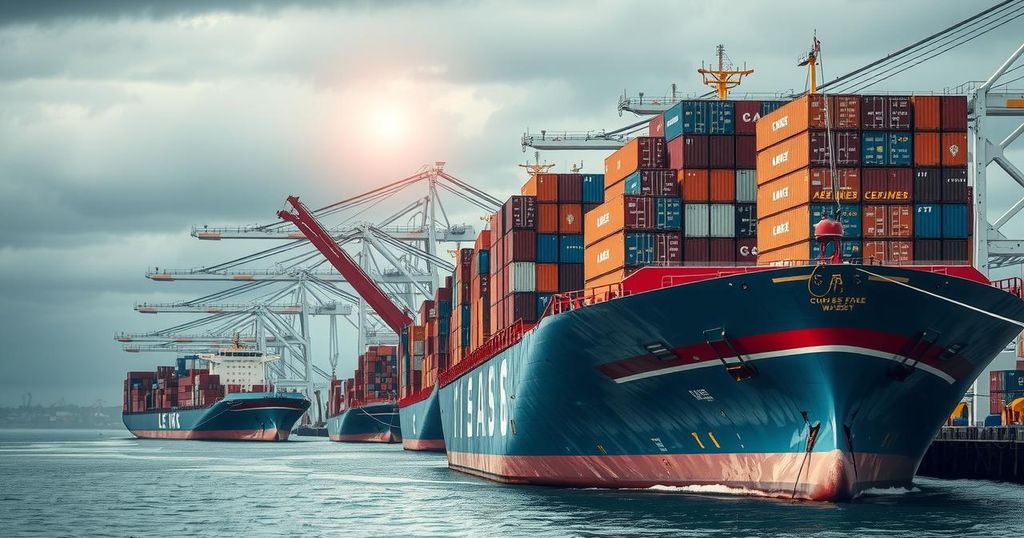Ecuador Imposes Tariffs on Mexican Imports Reflecting U.S. Trade Policies

Ecuador’s President Daniel Noboa announced a 27% tariff on Mexican imports, reminiscent of U.S. trade policies under Trump, aiming to enhance local production and potentially win support from Washington. This announcement follows strained diplomatic ties with Mexico after a controversial police incident at the Mexican Embassy related to Ecuador’s former Vice President Jorge Glas. Despite minimal trade between the countries, Noboa’s decision reflects significant political implications amidst his ongoing re-election campaign.
Ecuador’s conservative President Daniel Noboa recently announced an increase in tariffs on imports from Mexico, raising them to 27%. This policy mirrors a trade strategy previously discussed by U.S. President Donald Trump. The president’s rationale for these tariffs is to bolster local manufacturing, while also aiming to garner support from the U.S. amid ongoing negotiations regarding illegal immigration and drug smuggling concerns between the two countries.
The timing of Noboa’s tariff announcement coincides with a tense diplomatic situation between Ecuador and Mexico, especially following Ecuador’s controversial arrest of former Vice President Jorge Glas in the Mexican Embassy. This incident led to a severing of diplomatic ties after Ecuadorian police forcibly entered the embassy, which was condemned as a violation of international law. Ecuador maintains that Glas is wanted for fraud, not political reasons, and accuses Mexico of improperly granting him political asylum.
Trade relations between Ecuador and Mexico are currently minimal, with Ecuadorian exports to Mexico comprising less than one percent of Mexico’s total exports. President Noboa, who inherited a banana business fortune, is seeking his first full term in office after serving 18 months since succeeding Guillermo Lasso. His administration’s focus on tariffs may be influenced by the broader context of regional politics and his association with Trump, whom he praised during his recent campaign activities.
The context of this tariff increase stems from a broader trend in regional politics, particularly influenced by U.S. policies under former President Trump. Trump’s administration had sought to impose tariffs on various nations, and Noboa’s actions seem to mirror this approach in an attempt to strengthen Ecuador’s local industries while navigating the complexities of diplomatic relations with Mexico. This tariff announcement also emerges alongside a larger narrative of contentious negotiations surrounding immigration and trade amid growing diplomatic tensions between Ecuador and Mexico, especially following significant events such as the arrest of Jorge Glas.
In conclusion, President Daniel Noboa’s decision to impose a 27% tariff on Mexican imports aligns with conservative economic policies aimed at promoting local production while concurrently reflecting a desire for alignment with U.S. trade strategies. The escalated tariffs occur amid fragile diplomatic relations marred by past actions involving Ecuadorian police and the Mexican Embassy. As Noboa campaigns for a full electoral term, the impacts of these tariffs, although minor in terms of trade volume, signal a significant political stance within the context of broader regional dynamics.
Original Source: apnews.com







